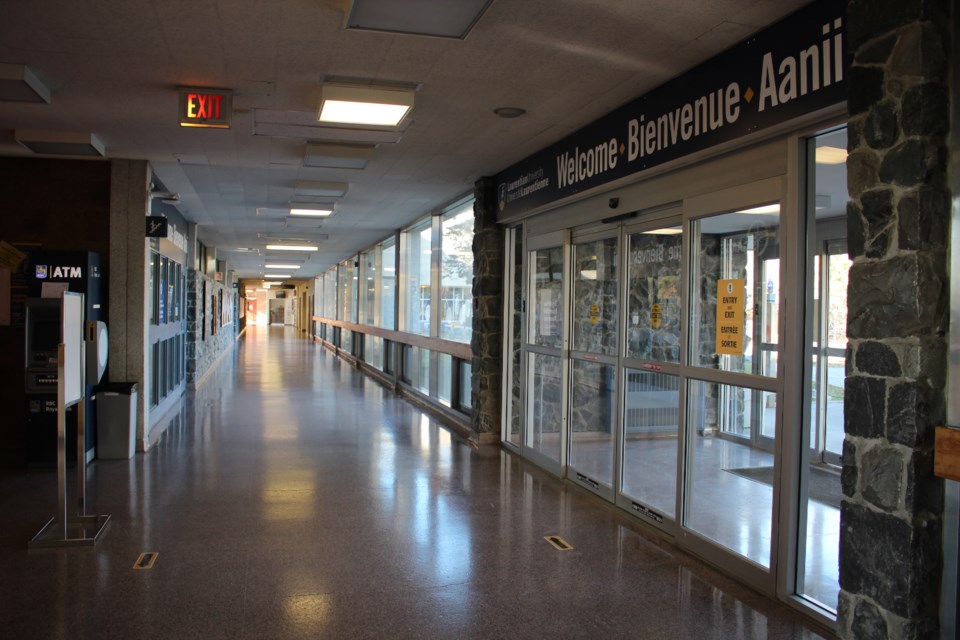As the Laurentian University senate voted Jan. 19 that instruction and exams continue to be delivered remotely for the spring 2021 semester that starts in May due to COVID-19, the university’s president suggested a return to face-to-face classes may be possible this fall.
Laurentian, like all post-secondary schools across the country, has been operating largely through remote platforms such as Zoom since the pandemic hit Canada last March.
“If you look at my report to the senate today, I do suggest we begin returning our attention to fall and the prospect of more regular programming,” said Robert Haché.
“It’s impossible to say today, but if the distribution of vaccine occurs according to what we are presently told should occur by the government, we may expect that the virus will be well under control as we get into the summer.
“And certainly if there is any university that has the opportunity to come back face-to-face with appropriate social distancing, it’s certainly a university with as large and expansive a campus as Laurentian that exists in a community that has been less impacted by the virus than many in the country.”
Haché said he hoped the matter would be able to be brought before the university’s senate by late winter for some decisions to be made.
“I think that would be early enough to help students with their decision making, and I thought March might be the appropriate month to shoot for, or senate meeting to shoot for,” he said.
While the Laurentian senate voted in favour of continuing most of its programming online in the new semester, unless it’s necessary that it take place face-to-face, in the process there was some discussion of what remote learning has meant for students.
Students’ General Association president Eric Chappell said he has “some concerns” about the consistency of the education his peers have received since last March as they have studied remotely.
“I’m seeing it applied very differently across campus,” he said.
“I don’t have a recommendation today, but I think one day we are going to have to be more descriptive of what alternative technology means. I’m seeing a lot of cases where students are being told after the first class this will be the only class we have face-to-face.”
In the discussion that ensued, Indigenous studies professor Laura Hall said she was uncomfortable with the insinuation that professors are not working hard enough, “and that we need some sort of overarching demand at the senate to tell faculty how to work.”
She said last summer, as professors scrambled to prepare their courses for remote learning, experts were saying that asynchronous learning (where students could learn on their own schedules) allowed students to “have low-stress interactions with us.”
